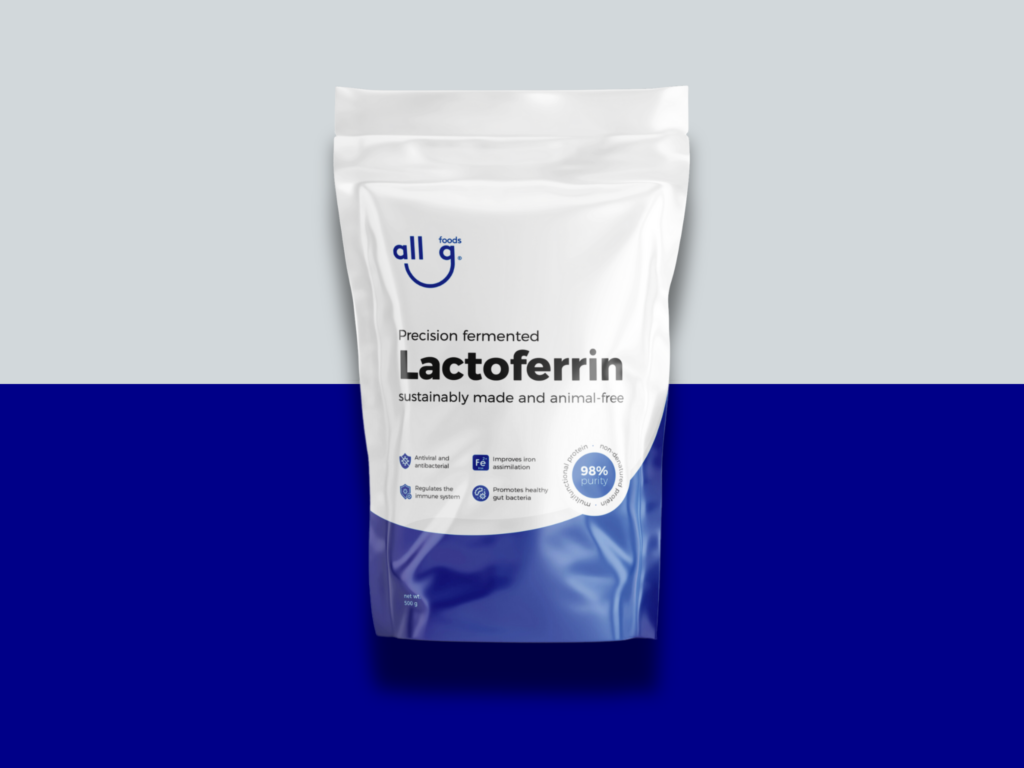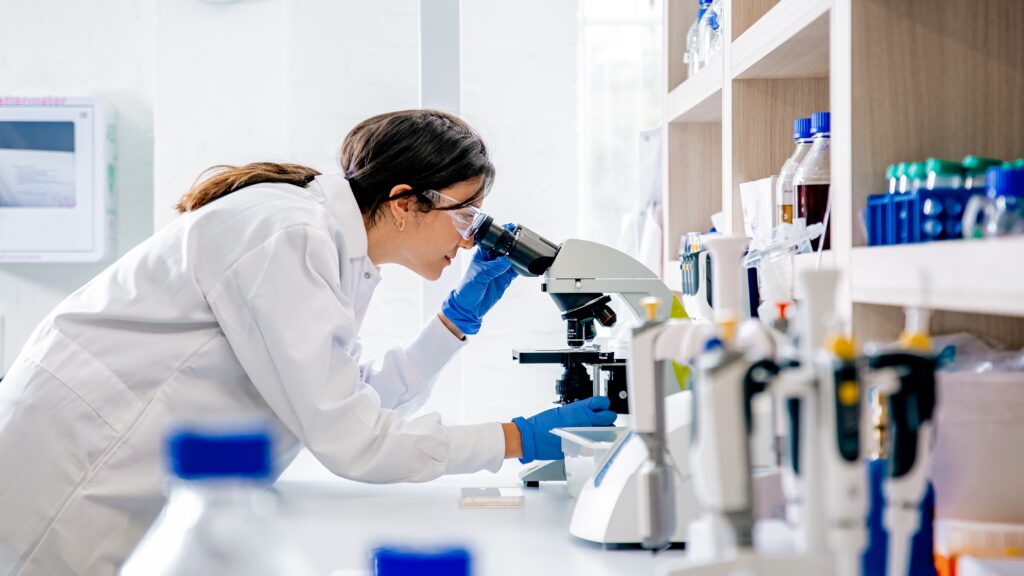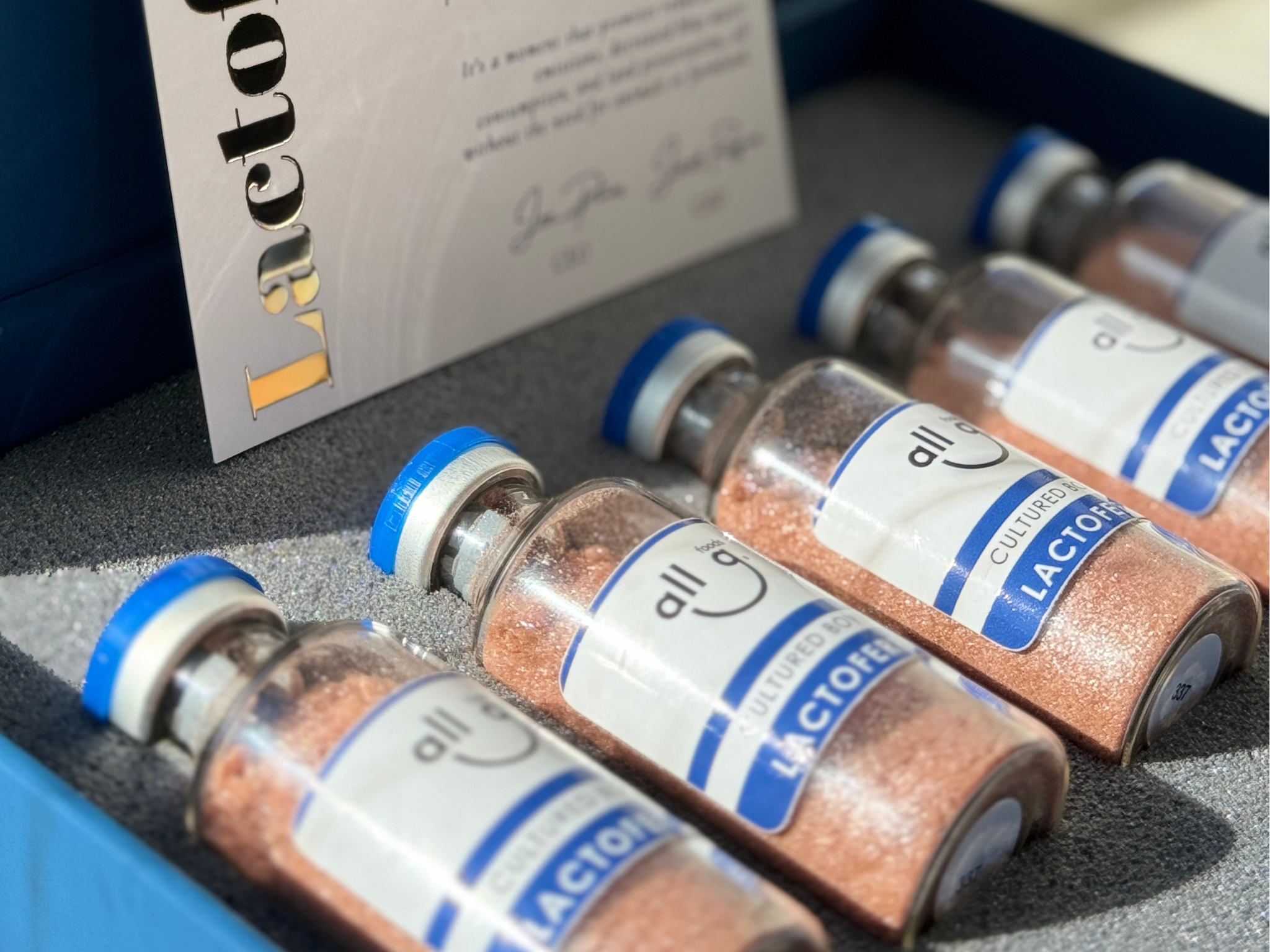5 Mins Read
Sydney-based All G has secured the regulatory greenlight to sell its precision-fermented lactoferrin protein in China. It expects to receive approval in yet another market imminently.
In what is yet another marker of China’s biotech dominance and global regulators’ embrace of precision fermentation, All G is now allowed to sell its animal-free lactoferrin protein in the East Asian country.
The Australian firm becomes the first company to secure approval for the sale of precision-fermented bovine lactoferrin in the nation, and aims to launch its first products in the market in the second half of 2025, founder and CEO Jan Pacas tells Green Queen.
Lactoferrin, a whey protein found in human milk and bovine colostrum just after birth, is highly sought-after for its numerous functional benefits, including iron regulation. It’s an expensive ingredient in short supply, creating a major opportunity for alternative protein producers.
The development gives All G access to one of the world’s largest consumers of lactoferrin. “With strong support from our local partners, we’ve been able to navigate the regulatory process effectively and are excited to bring our product to market,” says Pacas.
He adds that the company expects regulatory approval in another big market in the next couple of months. “Beyond China, priority markets for us include the US, Australia and New Zealand, and Japan,” he reveals. “Each of these markets represents an exciting opportunity to expand and showcase the potential of our lactoferrin on a global scale and enter untapped markets.”
‘World’s most efficient strain’ allows All G to make much cheaper lactoferrin

All G started off by selling plant-based meat products, but last year pivoted to solely focus on its ongoing R&D efforts for precision fermentation. The technology combines the process of traditional fermentation with the latest advances in biotechnology to efficiently produce a compound of interest, such as a protein, flavour molecule, vitamin, pigment, or fat.
Lactoferrin is a protein rich in iron – whose reddish hue has given it the ‘pink gold’ nickname – and is prized for its antiviral, antibacterial, anti-carcinogenic, immunity-boosting, and gut-strengthening properties. The ingredient is used to treat low iron levels during pregnancy, while lactoferrin supplements lower the risk of respiratory tract infections.
However, it’s present in small concentrations in cow’s milk, with at least 10,000 litres of milk needed to produce just 1kg of purified lactoferrin via industrial-scale, resource-intensive processes. This drives up costs, with the current market price reaching around $800 per kg.
To lower the environmental impact and cost, as well as improve yields, All G inserts the gene for the target protein into microbes like yeast or bacteria, turning them into high-efficiency protein producers. The microbes feed on sugar and secrete the desired protein – lactoferrin, in this case – in a five-day bioreactor process, doing away with the need for cows while ensuring consistency and scalability.
“We believe we have the world’s most efficient strain for bovine lactoferrin production,” Pacas says when asked about costs. “We already have yields at pilot scale that would result in COGS [cost of goods sold] much, much lower than today’s lactoferrin prices. And we are continuing to optimise. We have multiple global CMO [contract manufacturing] facilities for scalability, so we’re confident we can meet both current demand and future growth.”
Much of the global lactoferrin supply is reserved for infant formula and supplements, but the protein has multifunctional properties well-suited to applications across functional foods, sports nutrition, women’s health, adult and elderly nutrition, pharmaceuticals, and skincare.
But All G isn’t just working on bovine lactoferrin – it’s also developing a bioidentical version of the whey protein found in breast milk, where it’s significantly more abundant. “Our human recombinant lactoferrin is also not far behind, and we can leverage learnings from our bovine work to expedite our productivity,” Pacas notes.
China presents a market ripe for animal-free lactoferrin

The Sydney-based startup first indicated its interest in the Chinese market in 2022, after closing a $25M Series A funding round (which took its total raised to $41M). “China is a massive market for lactoferrin and one of the most forward-thinking markets globally when it comes to functional ingredients,” says Pacas.
“The level of demand there and consumer recognition of the virtues of lactoferrin makes it the ideal starting point for us,” he adds. The country is home to the world’s largest infant formula market – although All G’s approval doesn’t yet cover infant nutrition.
However, it will tap into the demand for functional foods in China, which has exploded amid a rise in health consciousness. “For our launch, we’ll focus on high-value formats and applications, ensuring the product fits into what customers and consumers are looking for.”
China’s citizens are already eating more protein per capita than the US now, most of which comes from animal-free sources. It comes as policymakers have been encouraging consumers to eat fewer animal products and more plant proteins, as part of a broader drive to connect public health with socioeconomic development, which began with the Healthy China 2030 policy.
The government’s latest five-year plan for agricultural and rural tech development, meanwhile, calls for research on future foods, including recombinant proteins. And with its 30-60 climate policy, China aims to hit peak emissions by 2030 and become carbon-neutral by 2060 – research shows this will only be possible if half of all proteins consumed in the country come from alternative sources by 2060.
All G has previously teamed up with Australia’s Food and Beverage Accelerator to speed up development and create products with its animal-free lactoferrin. “We’re fortunate to have some excellent partnerships already in place, including a trusted partner in China who is ready to help us scale,” Pacas says now.
It is among a number of companies working with animal-free lactoferrin, seen as a way to accelerate investment returns amid the high costs and scale-up challenges of precision fermentation. These include fellow Australian player Noumi, US startups Helaina, De Novo Foodlabs and Triplebar Bio, New Zealand’s Daisy Lab, and Singapore-based TurtleTree – the latter has been cleared for sale in the US.
All G is the latest in a growing list of precision fermentation companies obtaining the greenlight from regulators this year. In fact, its announcement came on the same day Israel’s Imagindairy was cleared to sell its cow-free beta-lactoglobulin (another whey protein) in its home country.



